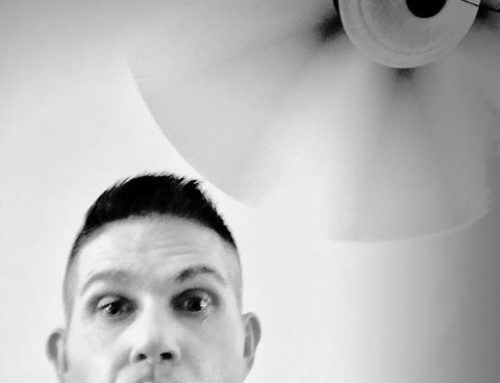Addiction is a disease that affects those closest to the addict. This could be because of the money that is stolen or spent on treatment, the emotional turmoil caused by not knowing if the person is safe, or any other number of ways that addiction affects the family. However, an unforeseen effect that addiction has on loved ones of the addict is on a societal level, having the shadow of stigma thrust upon them through no fault of their own.
People whose loved one are an addict or alcoholic have quite enough to deal with. Every day they may come home and not know which person is going to greet them. They don’t know if they will have the loving daughter, mother, etc., or the fall down drunk. This leads to a constant state of chaos and anxiety in the family unit that is hard enough to deal with on a personal level, but when you add in the fact that many of these people have to hide what is going on their households due to fear of judgment or stigmatization it only makes matters worse. Often these families go out of their way to try to provide supportt to their loved ones with little or no success. Often they are left at a loss as to how they are supposed to help their loved one.
As far as we have come in our understanding of addiction and alcoholism there is still a general opinion that these illnesses stem from a character flaw or weakness. This puts the blame for the addiction on the person who is afflicted and by proximity those closest to them. The thought process goes well if they only managed their wife, husband, or children better then they wouldn’t be addicts and judgment and blame are unfairly placed on those closest to the addict.
This sort of thinking more times than not will keep someone who is living with an addict or alcoholic from reaching out for help and so they shoulder the responsibility all by themselves.
This affects all of the members of the family because they are forced to keep a secret that they did not ask to know about. They do not want to tell their friends about their loved one’s addiction and they are often times placed in a position of excuse making so as to not expose themselves to ridicule.
I was speaking to one of my friends recently, whose mother was an alcoholic when he was growing up and he explained to me how the stigma attached to alcoholism affected him and his sister.
“I didn’t know that my mother was an alcoholic until I was 8 or 9 years old. My dad took my sister and I out to dinner one night and explained to us that the reason why my mother acted weird after 6 o’clock at night was because she was an alcoholic. I remember for some reason understanding what this meant when he told us and the strange thing is that after I knew the reason I stopped talking about it with my friends. Before I knew what was going on I would always ask my friends if their parents acted weird at night, but after I knew she was an alcoholic I stopped asking. I felt embarrassed and I didn’t want anyone to know what was going on and because of this I suffered a lot of anxiety that people would find out.”
His story illustrates perfectly the dilemma of the loved one of the alcoholic. They are faced with an impossible situation at home and no real outlet with which to discuss it. However, my friend’s attitude on this matter changed as he got older and he began to talk to about his mother’s alcoholism.
“Around the time I was in high school I stopped feeling guilty for wanting to discuss my mother’s alcoholism, and I started to talk to people about it. I would discuss it with other people and while there was some stigma attached to it, as I’d get those sad pitying looks from people, it didn’t bother me as much. My sister on the other hand never talked about it. I found this out years later that she never told one single person about my mother’s alcoholism because she was too embarrassed by it. For years she was extremely angry and just left everything bottled up inside until she eventually went to therapy and started to discuss these things. From there she was able to start to heal.”
Unfortunately, the experience that my friend and his sister had when they were younger is not unique. For children or other loved ones of alcoholics or addicts, they are affected at home and as they walk around in society. If they expose their loved one’s addiction they could possibly open themselves up to the stigmatization that can occur and if they keep it a secret they suffer the consequences of this as well. It is a losing proposition either way, but one way to help combat this is through seeking out like minded people who have experienced what you are going through.
One of the most important things when dealing with an addicted loved one is to talk about it with someone and if the fear of stigmatization is too great then seeking out private therapists or going to support groups like Al-Anon is a great way to avoid this. It is important to relate to others who have experienced or who are experiencing what you are going through because it helps to reduce some of the feelings of being alone and helplessness that can come from having an addicted loved one.
It is also important to remember that your loved one’s addiction is not your fault. You did nothing to cause it and in no way is it a reflection of who you are. Some people in society may feel differently but they are misinformed and ignorant of what addiction really is. Though the stigma may sometimes fall on you, it is not yours to own, so do whatever you need to do to keep healthy and try to brush off any misinformed societal opinion.
 Rose Lockinger is a passionate member of the recovery community. A rebel who found her cause, she uses blogging and social media to raise the awareness about the disease of addiction. She has visited all over North and South America. Single mom to two beautiful children she has learned parenting is without a doubt the most rewarding job in the world. Currently the Outreach Director at Stodzy Internet Marketing.
Rose Lockinger is a passionate member of the recovery community. A rebel who found her cause, she uses blogging and social media to raise the awareness about the disease of addiction. She has visited all over North and South America. Single mom to two beautiful children she has learned parenting is without a doubt the most rewarding job in the world. Currently the Outreach Director at Stodzy Internet Marketing.






Leave A Comment